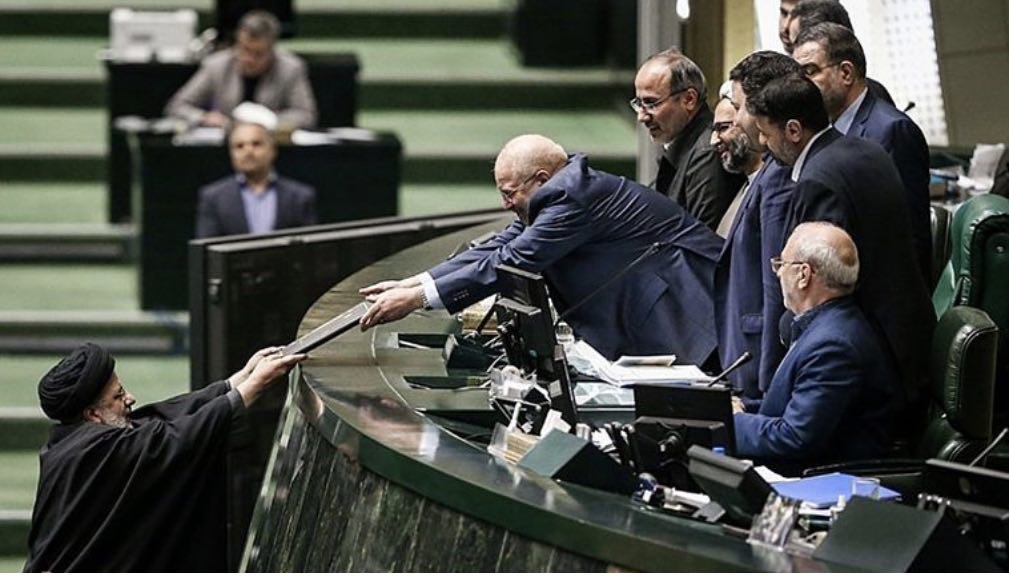Budget 1402 and the deadly mistake of the main government
According to Iran Gate, in the past two weeks, during the presentation of the 1402 budget bill to the parliament, many economists and economic analysts have strongly criticized the government’s policies regarding budget planning. However, almost all intellectual spectrums and currents in Iran’s economy agree on the extremely dangerous nature of one point, which is the government’s estimation of oil revenue for the coming year.
The most common criticism that has always been raised against Iran’s budget system is the governments’ avoidance of realistic predictions regarding revenues and expenses. In other words, governments always calculate their future revenues optimistically and declare their expenses in a way that the expected expense floor is lower.
Of course, this imbalance in budget planning has been present in every government with varying degrees of intensity and weakness. However, naturally, such unrealistic and wishful thinking predictions will not only fail to achieve the desired result but also lead to consecutive deficits and ultimately worsen inflation.
Budget planning in a parallel world
Ebrahim Raisi’s government is not exempt from the rule of wishful thinking. In fact, if we want to be more precise, the thirteenth cabinet is the embodiment of all the wishful thinking that has been seen in previous governments.
The current state of Iran’s economy sends a clear message to any amateur observer that the government must immediately address the deteriorating budget and the impending disaster it presents to the parliament. Otherwise, Raisi’s failed economic team must prepare themselves for even more challenging days ahead.
The prerequisite for this action is for the government to come down to earth and align its next year’s budget with the global coordinates that, by nature, it is inclined towards. In other words, as long as the government sets the budget for the coming year in parallel with its own desired coordinates, the situation will remain the same.
What is the main fault of the government?
As mentioned, among the numerous mistakes in the 1402 budget bill, none compare to the magnitude and disastrous consequences of miscalculating oil revenue in 1402. The government expected to sell 14 million barrels of oil daily, while in the current year, with fewer political and international crises and ongoing nuclear negotiations, the government achieved less than half of that amount. The reasoning behind such wishful thinking remains unclear to anyone.
It should not be forgotten that the events of the past four months in Iran and European and American capitals have permanently changed Iran’s relations with the world. This change is accompanied by intensified sanctions and political and economic pressures on the thirteenth government. The sale of oil has never been separate from global political developments and has always been influenced by international relations.
Now, it is unclear how the thirteenth government expects to sell oil in conditions of intensified sanctions and the suspension of negotiations, which is more than twice the amount sold last year. On the other hand, one should not overlook China’s new positions towards Iran and Beijing’s game with the Western world and cooperation with the Arab countries on the Persian Gulf. China, which has been the largest buyer of Iranian oil, knows well that intensified global pressures on the Islamic Republic will create even more problems and obstacles for oil purchases.
Oil pricing with the Shoush and Molavi pattern
Continuing the strategic mistakes of the Rouhani government in budget planning, one can mention the prediction of oil prices. A rate of $85 for the coming year, especially when reputable analysts predict much lower figures, is among the wishful thinking of the Rouhani government.
Even if such a rate is achieved, Iran will not be able to sell its oil at this price because Iranian oil customers have demanded heavy discounts and the Islamic Republic has no choice but to accept their conditions. Therefore, in reality, Iranian oil is being sold on the market with at least 15% less than the market price, and this budget forecast of the government is nothing more than wishful thinking.
The culmination of this destructive error can have a clear meaning, which is the continuation of record-breaking inflation rates in 2023 and the intensification of economic pressures on the people.
Persian
مشاهده این مقاله به زبان فارسی



